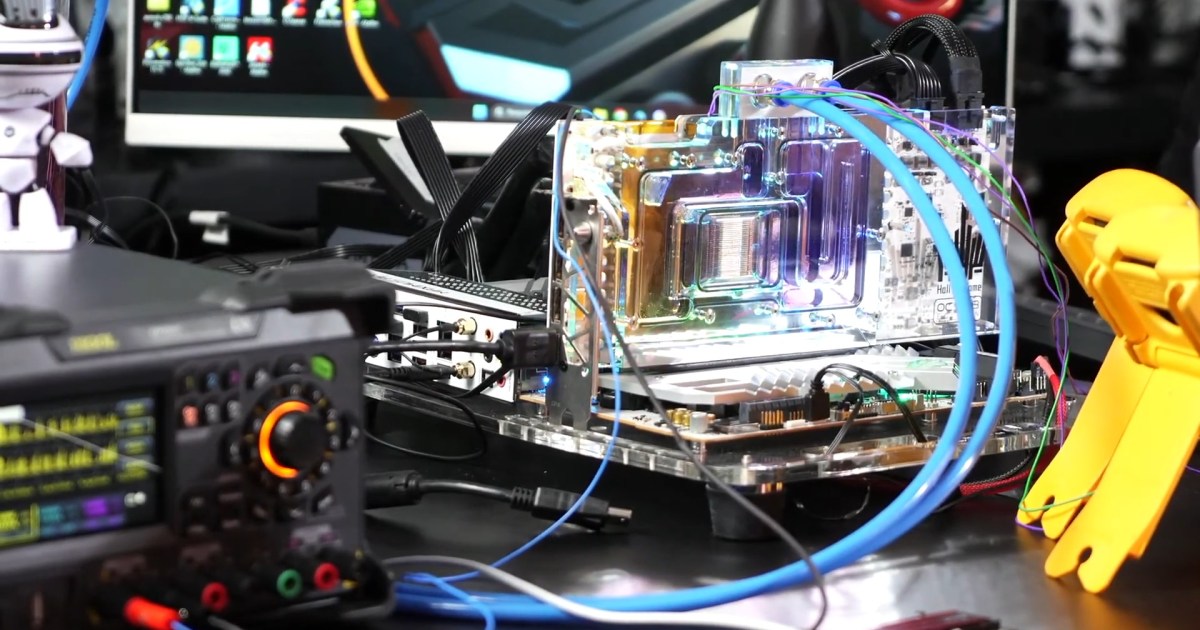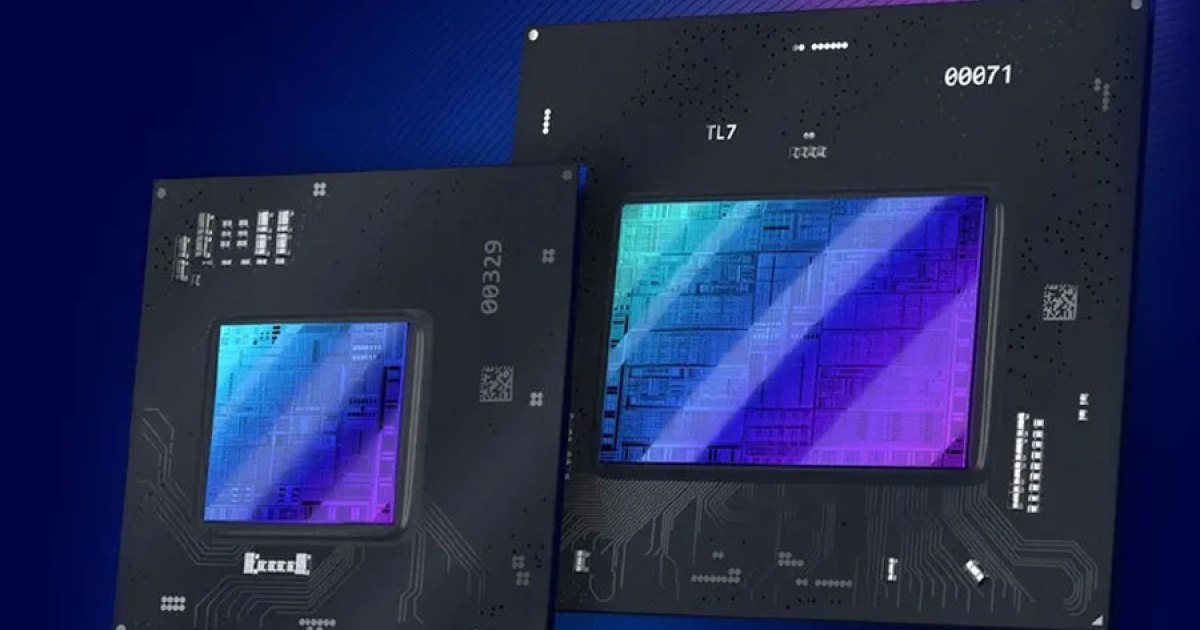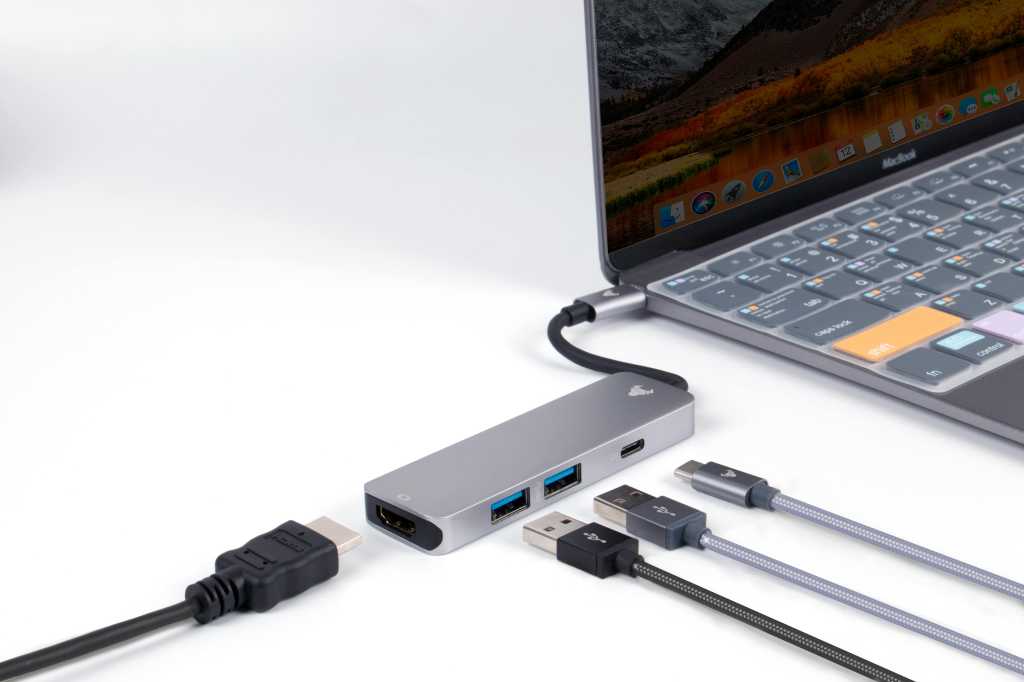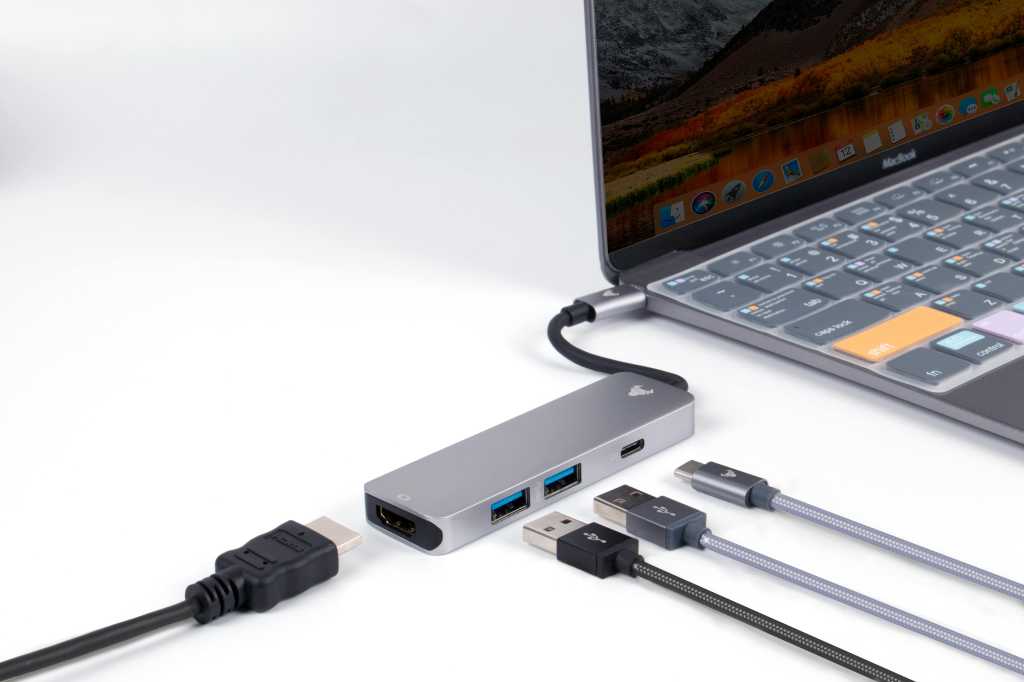One of the most effective ways to protect your data and privacy when using large language models (LLMs) and machine learning is to run them locally. This eliminates the need to share sensitive information with third-party servers. Surprisingly, building a powerful AI PC doesn’t necessarily require top-of-the-line hardware, though it certainly helps. This guide will walk you through building a PC optimized for AI and machine learning workloads, ensuring your data remains secure and readily accessible.
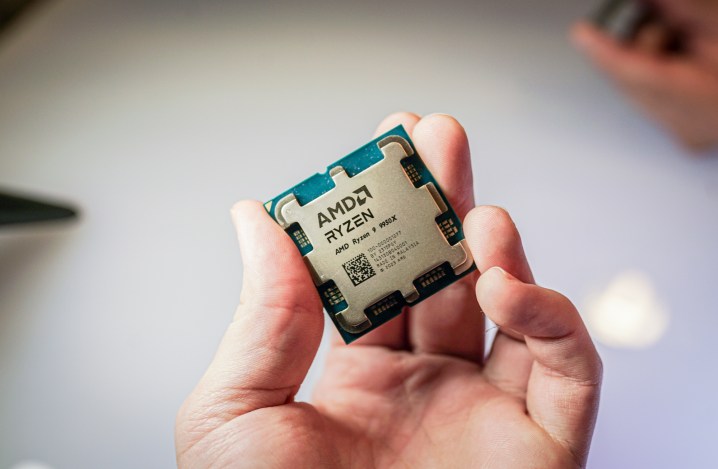 A hand holding AMD
A hand holding AMD
Key Components for an AI-Powered PC
While similar to high-performance PCs for other tasks, AI PCs have unique requirements that influence the build process. Unlike gaming PCs, where the CPU often takes center stage, the GPU reigns supreme for AI workloads. While manufacturers tout the efficiency of neural processors in CPUs, their TOPS (trillions of operations per second) pale in comparison to a high-end GPU like the Nvidia RTX 4090, which boasts over 1,300 TOPS.
Therefore, a powerful GPU with ample VRAM is paramount. Sufficient system RAM is crucial when VRAM is exhausted, along with fast and spacious local storage. A high-end motherboard, while not directly impacting AI performance, ensures stable power delivery to the CPU and GPU, and can support multiple GPUs for accelerated training or parallel processing. The remaining components, including the case, power supply, and cooling system, should be chosen to ensure stable operation under heavy load. While power efficiency is desirable, it often conflicts with the need for a high-performance GPU. Future upgradeability is another factor to consider.
Choosing the Right CPU
 A hand holding AMD
A hand holding AMD
Although the GPU is the workhorse for AI tasks, the CPU still plays a supporting role. A modern CPU with multiple cores and a clear upgrade path is recommended. The AMD Ryzen 9 9950X, with its 16 cores and 32 threads, offers a balance of performance and power efficiency. For a budget-friendly option, the Ryzen 7 7950X provides excellent performance at a lower price point. Intel enthusiasts can consider the Core Ultra 9 285K or Core Ultra 7 265K, both offering numerous cores, impressive efficiency, and integrated neural processors.
Selecting a Motherboard
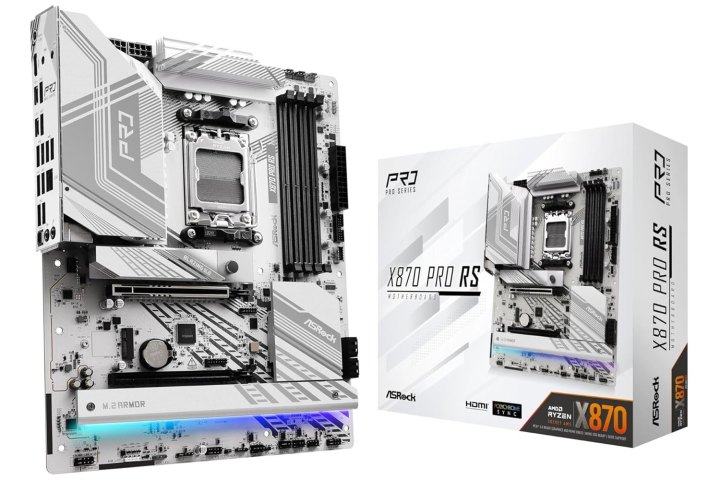 ASRock X870 Pro RS motherboard and box.
ASRock X870 Pro RS motherboard and box.
The motherboard, often overlooked, plays a vital role in an AI PC. A board with robust VRMs for stable power delivery is essential. PCIe 5.0 support for high-speed storage and support for multiple GPUs are beneficial features. While high-end motherboards offer enhanced features, a mid-range option will suffice for most builds. Ensure compatibility with your chosen CPU and select a board with the features you need within your budget.
Prioritizing the Graphics Card
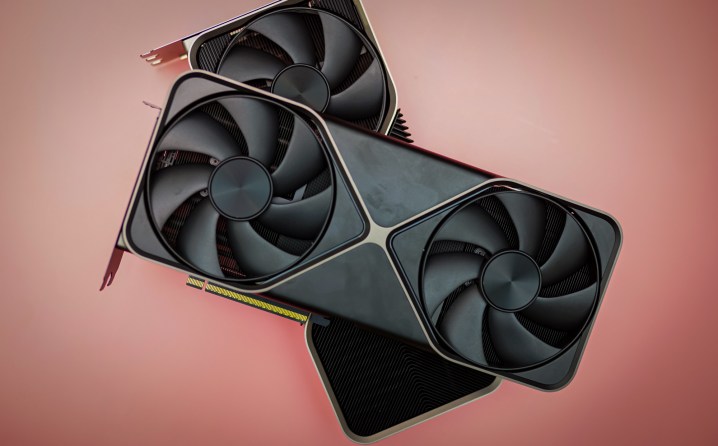 The RTX 5090 sitting on top of the RTX 4080.
The RTX 5090 sitting on top of the RTX 4080.
The graphics card is the most critical component in an AI PC. For training large language models or running complex ones, a powerful GPU with ample VRAM and thousands of processing cores is necessary. Budget-conscious users can consider the Nvidia RTX 3060 12GB. However, for demanding models, the higher-end RTX 5090 offers the best performance, although availability may be limited. Consider last-generation alternatives like the RTX 3090 or RTX 4070 Ti Super. While AMD GPUs excel in gaming, Nvidia’s CUDA and Tensor cores currently offer superior performance for AI tasks.
Choosing Memory and Storage
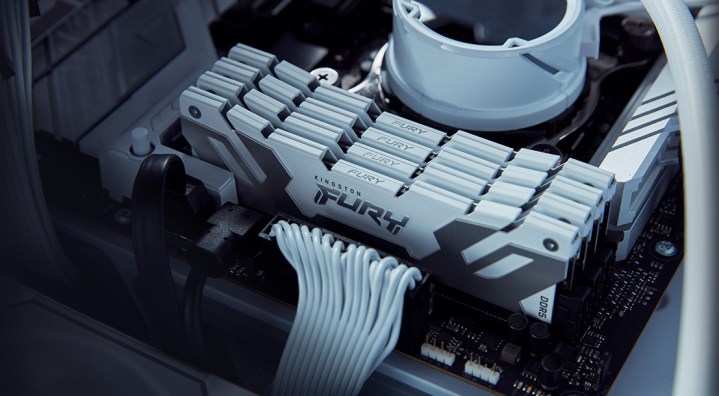 The Kingston Fury Renegade DDR5 memory modules in white.
The Kingston Fury Renegade DDR5 memory modules in white.
A 64GB kit of 6400MHz DDR5 RAM from a reputable manufacturer like Corsair, Kingston, G.Skill, Patriot, or TeamGroup is recommended. Faster memory offers minimal gains without overclocking. For storage, prioritize fast and spacious NVMe SSDs. Several terabytes of PCIe 5.0 SSD storage offer ample space for training data. Choose a reputable brand and prioritize capacity.
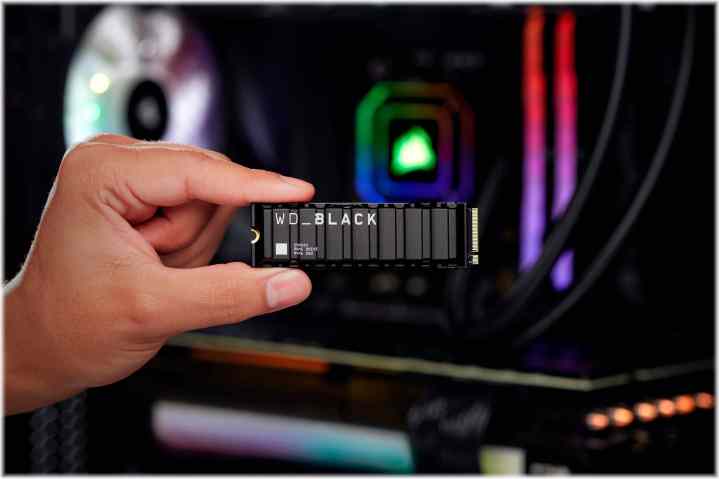 Hand holding up WD Black SSD.
Hand holding up WD Black SSD.
Powering Your AI PC
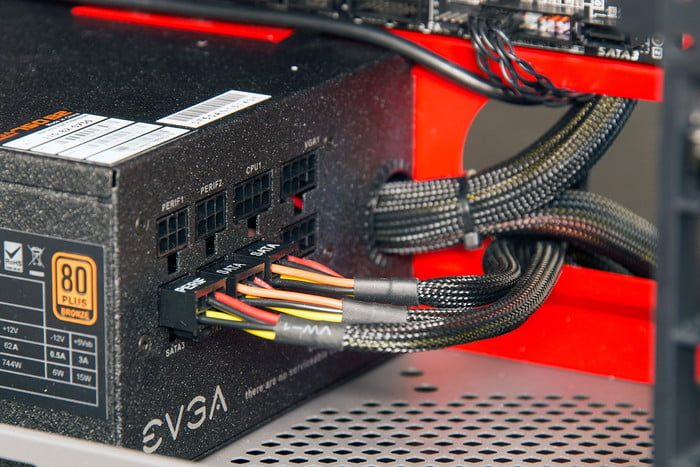 PC power supply cables on a modular PSU.
PC power supply cables on a modular PSU.
A reliable power supply is crucial for the long-term health of your AI PC. Invest in a 1200W+ Titanium or Platinum rated PSU from a reputable brand like EVGA, Corsair, Seasonic, FSP, Thermaltake, Enermax, SuperFlower, or beQuiet!. This ensures stable power delivery under heavy load.
Assembling Your AI PC
By following this guide, you can assemble a powerful and capable AI PC for enhanced privacy and local processing of large language models and machine learning workloads. This allows you to harness the power of AI while safeguarding your sensitive data.



